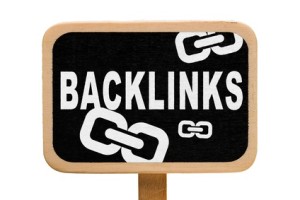I recently listened to a few presentations from this year’s SMX East (Search Marketing Expo), which focused on competitive research. Competitive research (as it relates to Search Marketing) is defined as the study of how your competitors optimize their websites for search engines. Search Engine Optimization (SEO) is such a massive topic by itself, so one could imagine how overwhelming studying every aspect of multiple competitors would be.
That said, I decided it best to start by focusing on one aspect that I hadn’t given much thought. I wanted to dig deep to get a better understanding of competitive research and how I could use it to benefit my clients. One area the presenters seemed to constantly be referring back to was being aware of your website’s backlinks and how to deal with any negative backlinks you acquire.
What Backlinks Can Do for Your Website
Backlinks, or incoming links, are links that one website/web page receives from other websites. Similar to votes, backlinks are like recommendations to search engines, telling them that the information linked is important and a reputable source. The number of backlinks a website has can be indicative of its popularity, and can factor in to search engine results’ rankings. However, it’s not as simple as just going out and getting a significant amount of backlinks to boost your website’s rankings.
Search engines, like Google, have updated their ranking algorithms to take into account the quality of the backlinks a website is getting. They give more consideration to links that are relevant to the website’s content, and have penalized websites that appear to have a significant amount of incoming links from irrelevant, or low-quality, websites.
How to Deal With Negative Backlinks
With all these backlinks coming in, one may wonder what’s stopping someone from creating a bunch of low-quality, negative backlinks, in an effort to harm your website’s search engine rankings. Many times websites will receive spammy backlinks or comments with bad links too. There’s actually a term for this, called “Negative SEO”, and there really isn’t anything getting in the way of someone attempting to harm your rankings by doing this. You’re only real option here is to remain vigilant and check your backlinks regularly to make sure you haven’t acquired any negative backlinks.
It is important to note that industry experts agree that most small to medium businesses aren’t usually affected by negative SEO, but there is still the chance that it could occur. Though there aren’t any preventative measures to stop attempts at negative SEO, you can monitor your link profiles and address any concern that way. Many SEO tools have backlink monitoring sections where you’ll be able to see all the backlinks your website or webpages receive, and where they’re coming from. So, whatever optimization tools you’re using, make sure to check out that section!
You can conduct a backlink audit your your website using SEO optimization tools like Moz’s Link Explorer, Raven Tools’s, SEMRush, or Google tools like Search Console and Analytics. From there you’ll be able to identify any existing low-quality links that could potentially have a negative effect on the website’s search rankings. The next step is to create a .txt file that lists the domains you do not wish to receive backlinks from, and submit that list to Google, using their Disavow Tool. By “disavowing” these links, we’re telling Google to not take certain links into account when assessing the site.
In Conclusion
Gaining backlinks to your websites send strong messages to search engine’s that your website is a valuable, strong source of information that can eventually lead search engine’s to prioritize your result. When backlinks are done correctly, it can be extremely beneficial to the overall success and ranking of your small business website.
However, if you find your website bombarded with negative backlinks, you need to make sure you’re staying on top of them and taking the proper actions to eliminate them. Regardless of whether or not you see any significant gains in rank, it’s still a good idea to be aware of what sites are linking to you, in order to take the necessary steps to combat any potential negative SEO.

